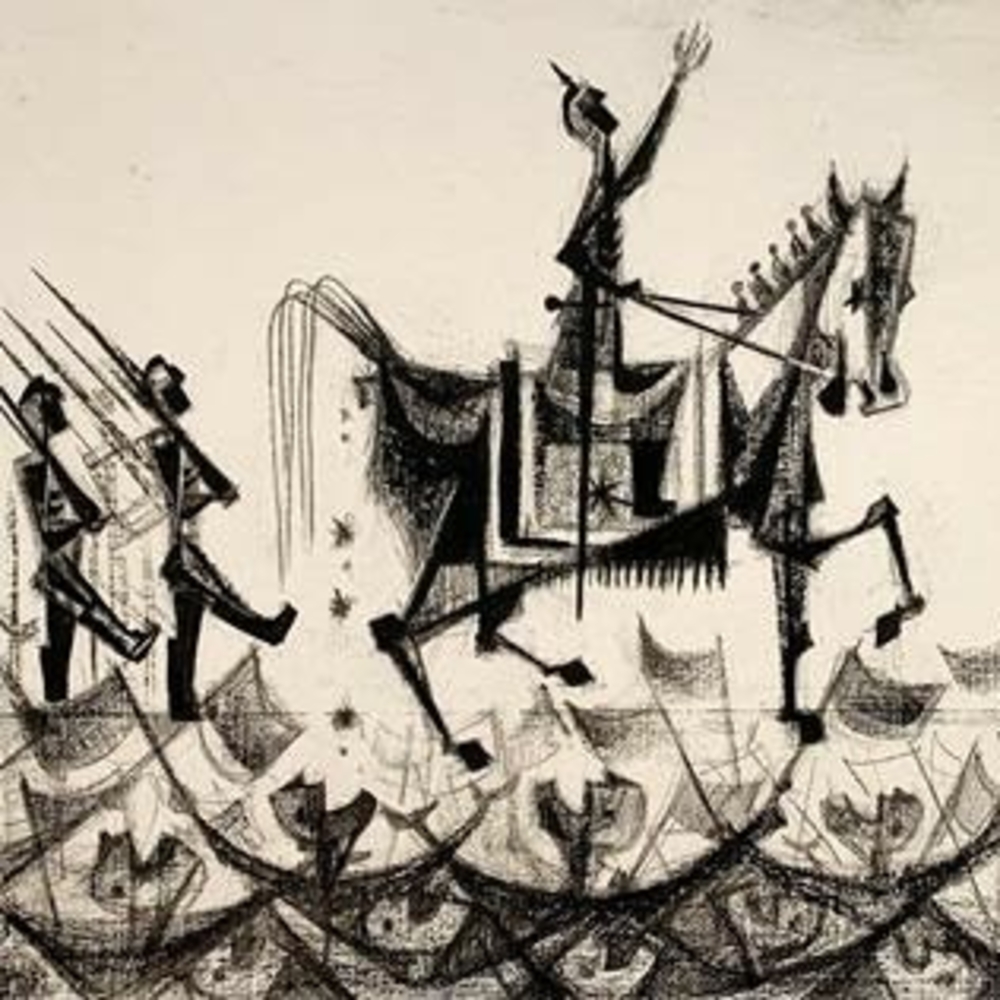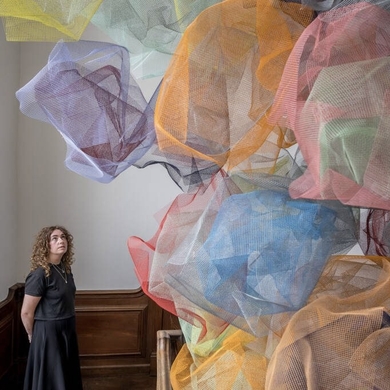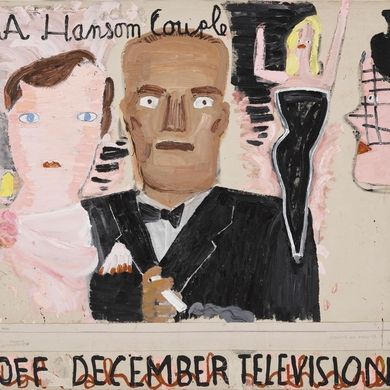Si Lewen was born in Lubin, Poland, in 1918. His family, Jewish, moved to Berlin in 1920, where Lewen studied drawing with Max Adron. In 1935, the family got very lucky—it received visas to the U.S. When America entered W.W. II, Lewen signed on; because he spoke German he was sent to Camp Ritchie, where he became a “Ritchie Boy,” a soldier who could translate, interrogate, and spy. Lewen was there, in 1945, when the Buchenwald Concentration Camp was liberated. In the next decade he began responding to that horror through art, and in 1957 his masterpiece, a graphic novel called The Parade, was published. Wordlessly it captures the seduction of nationalism, hate, brutality, and war—a cycle that never seems to die away. The series of 63 drawings, rarely exhibited, is now on view at the Menil. —Laura Jacobs
Arts Intel Report
Si Lewen: The Parade

An untitled drawing from Si Lewen’s “The Parade,” c. 1950.
When
Apr 21 – Sept 3, 2023
Where
Etc
Photo: © International Institute for Restorative Practices



